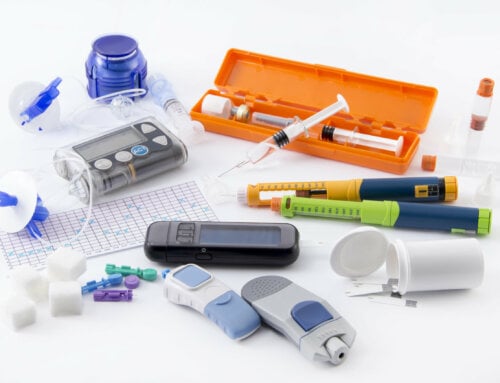Dealing with diabetes self-management is difficult enough and it should not affect the way people treat you at work. If diabetes limits one of your major life activities, it is often considered a disability. As a result, you are protected against workplace discrimination under the Americans with Disabilities Act (ADA) and should be aware of your rights.
- The ADA applies to private employers with 15 or more employees as well as local and state government employers. If you are employed by the federal government, you could be protected under the Rehabilitation Act. Some states have their own disability laws which provide even more protection. Diabetes should not keep you from being hired or cause you to get fired or passed over for a promotion. An exception to this rule is if you are a direct threat to the safety or health of yourself or others. For example, ongoing hypoglycemic episodes could make it difficult to operate heavy machinery. Case by case decisions and treatment options should be considered before any change in working status occurs.
- The employment provisions of the ADA are enforced by the Equal Employment Opportunity Commission (EEOC). A disability is when you have difficulty with major life activities such as caring for yourself or eating. A disability can also refer to side effects or complications that make it harder to handle major life activities. Disabilities are determined on a case-by-case basis.
- During a job interview, there is no legal obligation to tell a prospective employer you have diabetes. The employer cannot ask if you have diabetes or use insulin or other prescription drugs. If you get a job offer that requires a medical exam or medical history, you must comply. The job offer cannot be retracted unless an examination from a physician proves you would pose a threat to the safety and health of others or yourself. The employer is responsible to make reasonable workplace modifications to help you manage diabetes. Specific mealtimes and breaks can be planned to help prevent problems. You are protected by the Americans with Disabilities Act if an employer knows you have diabetes. The only two questions an employer can ask are if you need a reasonable accommodation and what the accommodation is.
- Your employer must make certain accommodations so you can manage your diabetes while working. An employer must give you breaks to check blood sugar, take medications and eat a snack as well as use the bathroom. You are also entitled to a private place to test your blood sugar and inject insulin. You need to be able to keep diabetes food and supplies nearby. You are entitled to use a stool, chair or shortcut if you have difficulty walking or standing due to diabetic neuropathy. If diabetes causes visual issues, a large screen computer monitor and similar devices should be provided. If your work schedule interferes with diabetes management, the employer must consider modifications. You are also entitled to time off for diabetes treatment and education as well as recuperating from diabetes-related complications.
- Your employer must keep your medical information confidential. There are limited circumstances when an employer can disclose you have diabetes. Supervisors and managers can be told to provide reasonable accommodations. Safety and first aid personnel can be informed so they can provide emergency treatment if necessary. Employers can also share the information with individuals investigating compliance with the ADA and other laws, as well as where needed for insurance or workers’ compensation purposes. An employer cannot share your condition with employees who ask why you are allowed to take breaks or do other things that are not generally permitted.
- Certain jobs may not be suitable if you treat your diabetes with insulin and this is not considered discrimination. An example is pilots who can get certain certifications but cannot be certified to fly large commercial planes. You may need to meet specific guidelines to become a police officer, fire fighter or commercial driver. There might also be certain restrictions in the military based on your branch, duties and diabetes management program. Additionally, poor job performance is a separate issue from diabetes. If your trouble at work is unrelated to your medical condition, it will be handled in accordance with your employer’s existing policies.
- If the company you work for has over 50 employees or you work for a government employer, you qualify for up to 12 weeks of leave under the Family and Medical Leave Act. This pertains to your own serious health condition or a health condition an immediate family member has.
- Many people with diabetes enjoy a successful professional life even if the job involves long hours or rotating shifts. Talk to your health care team about your diabetes self-management plan at work. Find out the best ways to manage medication and self-monitoring as well as diet and exercise on the job. Pack glucose tablets, extra carbohydrate snacks and keep your diabetes supplies on hand. Keep a small journal to write down blood sugar levels after testing during the day. Share them with your doctor at regular medical appointments to find out if adjustments need to be made.
Knowing your rights makes it easier to find the right job and be successful. Review your diabetes self-management plan with your doctor to make any necessary adjustments. Proper planning and a positive perspective make it possible to pursue almost any career you want.






Leave A Comment